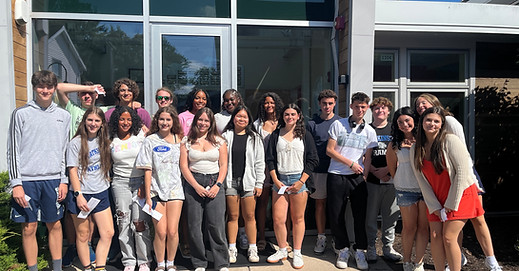Global Studies Portfolio
Global Studies
The Global Studies Program at Watkinson School is a dual diploma program focused on helping students become informed global citizens through exposure to unique ideas and opinions. The program aims to provide students with the knowledge they need to become strong global citizens and leaders by attending events, doing research, and taking part in meaningful discussions. The guiding themes of the program are human rights, non-violence and war, the environment, globalization, sustainability, technology, religion, and the arts.
One of the main reasons why I joined the global studies program is to become more involved and knowledgeable on global issues. So far, this program has allowed me to navigate a lot of information and many different perspectives without getting overwhelmed. I have realized that there is more to becoming a good global citizen than just knowing what is happening in the world. Taking action, learning more in depth about a topic, and hearing different opinions on current issues are just as, if not more, important. Another aspect that has contributed to my interest in global studies is my family background and love of travel. Since my dad is from Brazil and my grandparents, who are Italian and German, live in Brazil, travel has always been very important to me. When I traveled to Brazil at the age of nine, the trip was more than just a vacation since it is part of my identity and my family history. Trips like this have left me very interested in the world as a whole, helping me see a different way of living than my own.
